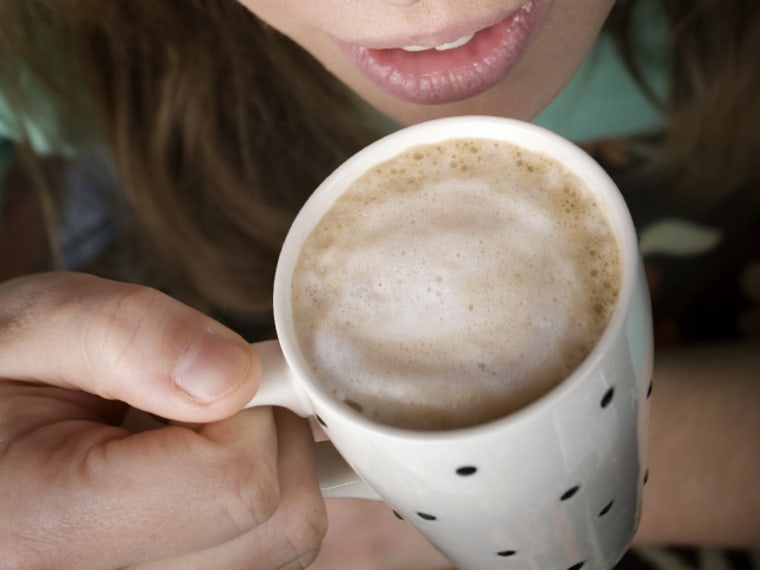If your last trip to the dentist revealed a crop of new cavities, look no farther than your coffee cup.
The culprit may be lurking in your latte, according to Seattle dentist Heidi Hackett, who says her conversations with patients have led her to believe that the popular coffee drinks are causing an uptick in adult tooth decay.
"We found that the majority of the patients are spending many hours a day working at the computer and 'nursing' either lattes or coffee with milk," says Hackett. "The constant exposure to the lactose or milk sugar is giving the bacteria in the mouth a flood of raw fuel or 'food' to metabolize."
According to Hackett, the type of bacteria most responsible for tooth decay is Streptococcus mutans, which metabolizes carbohydrates and sugars into acid. The acid then eats away at the tooth enamel until -- voila! -- a cavity is born.
Over the past five to seven years, Hackett says she's seen a definite rise in tooth decay in people who haven't had a high rate of cavities in the past. Now, though, the common denominator seems to be that they're all sipping on lattes or other milk-laden beverages or snacking at their desks throughout the day.
"There are a tremendous number of workers in our area who spend endless hours in front of a computer screen and drink coffee and snack for a fair number of those hours," she says.
Drinking your latte in 15 minutes is fine, says Hackett. But nursing it all day long like an adult baby bottle is where you get into trouble.
David Volk, a 47-year-old Seattle author and stay-at-home dad, says he's definitely a slow sipper when it comes to his morning mocha.
"I'll drink it as I remember," he says. "It'll be sitting on the desk and it'll get cold, so I'll put it in the microwave and then forget about it and then find it later and then start drinking it again. There are just days when you really need that mocha. It's like liquid therapy. I don't want to stuff my face, but I just need something. It's kind of a moment."
Unfortunately, stretching that moment out to several hours gives the bacteria a chance to go to town on your teeth.
Lattes should be considered snacks because of their high milk sugar content, Hackett says. And sippers should take appropriate steps to protect their teeth.
"If you're going to drink a latte or coffee with milk, you can drink water after to help neutralize the acid, or chew sugar-free gum to stimulate salivary flow to help rinse the acids and neutralize," she advises.
Fluoride rinse, she says, is another great way to keep your teeth healthy, especially if you drink a lot of beverages with milk, sugar, honey or if you constantly snack throughout the day.
Cleveland dentist Matthew Messina, a consumer spokesperson for the American Dental Association, agrees that sugar exposure is definitely a culprit -- even for adults.
"Whether someone's sipping a latte all day or sipping a carbonated soda all day or a baby is going to bed with apple juice in a bottle, the cause of the decay is still the same," he says.
As for a national trend in "adult baby bottle mouth," he says he's not aware of it.
"Maybe it's a Seattle thing," he says.
